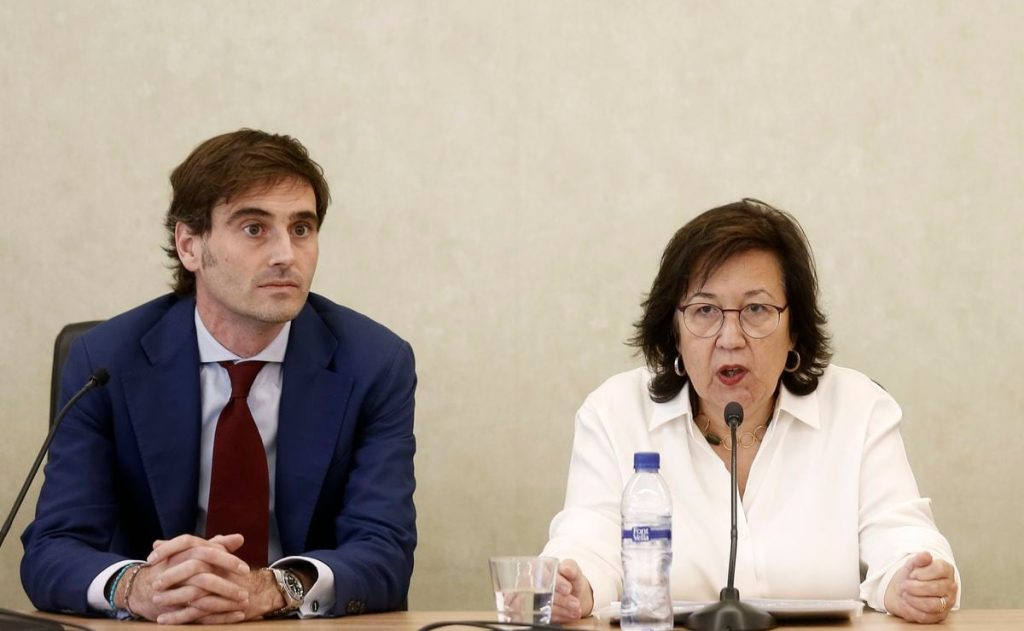Alvaro Redondo, the prosecutor of the Supreme Court who opposed investigating former Catalan president Carles Puigdemont for terrorism offenses in the Tsunami Democràtic case, has requested his resignation from the conservative Association of Prosecutors (AF), after the board of this group refused to grant him protection against the attacks made against him in an opinion article in the newspaper El Mundo. In a letter sent to the president of the association, Redondo laments that the AF is “completely unable” to defend him and accuses the board members of this association—who rejected supporting him at the Council Fiscal meeting on March 6—of adopting an “inconceivable and overwhelming attitude.”
Earlier this month, the Council Fiscal agreed to grant protection to prosecutor Redondo, who was accused by El Mundo columnist Jorge Bustos of being a “co-conspirator in a corrupt exchange” and of putting on an “obscene show” by signing the report opposing the investigation of the Tsunami case in the Supreme Court for terrorism offenses and the indictment of Puigdemont. However, at that meeting, the members of the Association of Prosecutors, a group that has an open confrontation with the current Attorney General of the State, Álvaro García Ortiz, decided to reject Redondo’s request, who has been a member of the AF for over 20 years. The position of this group caused the vote to end in a tie, so it was finally approved thanks to the casting vote of the Attorney General.
This conflict within the Public Prosecutor’s Office exploded on February 4, just two days before the meeting of the Criminal Prosecutors of the Supreme Court was to analyze the Tsunami case. On February 4, it was reported that Redondo, who had been assigned to study the case for presentation at the meeting, had concluded that there was not enough evidence to charge the former Catalan president with terrorism, as requested by the judge Manuel García-Castellón, the investigating magistrate of the National Court. However, on the same night of February 4 to February 5, El Mundo reported that Redondo had initially seen terrorism in the case and had “changed his mind” after “meeting with” the Attorney General.
The State Attorney General and Redondo himself—through a statement—denied this sequence of events and any kind of “indication” or “suggestion” from García Ortiz to the author of the report. The Supreme Court prosecutor explained that he had drafted an initial version where he saw terrorism, but had changed his position after a thorough study of the case. Furthermore, he added that the presentation he was going to bring to the meeting of prosecutors had been prepared before meeting with the top representative of the public ministry, and he stated that this was recorded in his “computer system.” Despite these explanations, the conservative sector of the legal profession took the opportunity to criticize the Attorney General. And in that context, Jorge Bustos published an article accusing Redondo of participating in a “corrupt exchange that suspends the application of the law and shields impunity,” as well as the “obscene spectacle of a servant of Justice degraded to a servant of power.”
Facing these accusations, Redondo decided to request protection from the Council Fiscal, which granted it on March 6, despite the rejection of the members of the Association of Prosecutors, who argued that “the publication of the journalistic article” did not cause any “concern or disturbance in the exercise” of his functions. Redondo explains that this group stated that this column in El Mundo was just a “individual publication without influence on the future functions of the affected person.” For the Supreme Court prosecutor, this attitude is “inconceivable and overwhelming,” contradicting the “Supreme Court jurisprudence, which establishes that protection ‘acquires its meaning when certain actions outside the legal relationship seek to influence public opinion by discrediting the judge.”
Redondo accuses the Association of Prosecutors of failing to fulfill “one of its most important purposes”: “Defending the members in their professional activities, as provided for in Article 7 of its statutes.” “For the reasons stated, considering that my continued membership in the AF is senseless, I request that you process, as soon as possible and with immediate effect, my definitive and irrevocable resignation from the association,” asks the Supreme Court prosecutor to the association’s president, Cristina Dexeus, as stated in a letter dated March 8.


